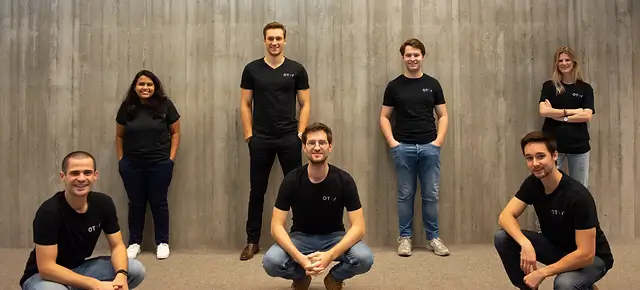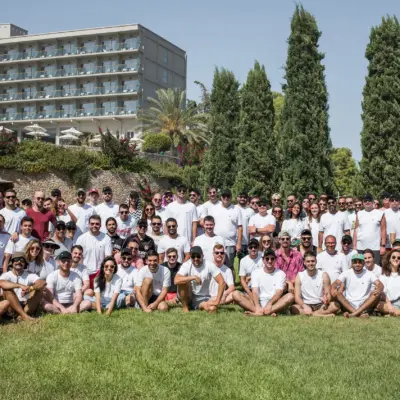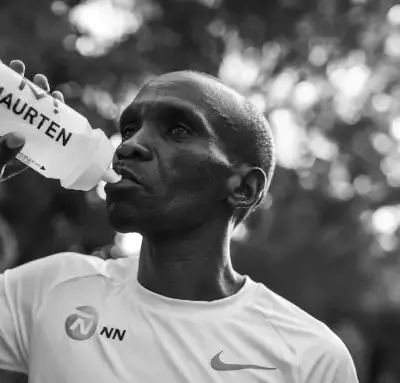The AI company OTIV, based in Belgium, has raised an unknown sum in a Series A round of funding. By teaching cars to drive themselves, OTIV increases the safety and effectiveness of railroad transportation.
The funds will be used to further the technology platform’s development and quicken pilots and rollouts with influential rail industry clients. The business also plans to double its staff at its Ghent headquarters shortly.
SHIFT Invest of the Netherlands and Finindus of Belgium jointly oversaw the funding. Imec.istart, an existing investor, also took part in the round.
OTIV is a member of the REMOOT consortium for the project, together with Mobility42 and Rail Systems Engineering.
A Dutch impact venture capital firm, SHIFT Invest makes investments in new technologies in the fields of food and agriculture, green industries, energy transition, and sustainable transportation & logistics. It supports businesses that are making both a profit and a positive influence on the environment.
“OTIV is one of the only European businesses concentrating on Autonomous Train Operations (ATO), a vital innovation to boost railway capacity and hence contribute to the modal shift from road to more sustainable rail,” says Willem Poerink, Investment Manager at SHIFT Invest. Our partners, including NS, Schiphol, and KLM, place a lot of importance on autonomous operations and sustainability.
ArcelorMittal and the Flemish Region support Finindus, which is affiliated with OCAS, a metal research facility. The company offers startups that offer smart, environmentally friendly industrial innovations in the areas of materials, sustainable manufacturing, and industry 4.0 early-stage and growth financing.
The OTIV.ONE system, which is now regularly used in industrial railyards, will swiftly establish OTIV as a leader in autonomous rail technology, according to Roel Callebaut, Investment Manager at Finindus. We are pleased to support the team’s aggressive growth objectives because they persuaded us with their extensive technical and market knowledge.
Sam De Smet and Niels Van Damme established the autonomous vehicle business OTIV in 2020 to improve the safety and effectiveness of railway vehicles in challenging conditions.
The business provides AI-powered assistance systems, remote control options, and fully autonomous systems. These solutions focus on a variety of rail vehicle use cases, including freight trains, commercial locomotives, mainline systems, trams and light rail, and light rail and tram systems.
Leading rail operators like SNCF, Deutsche Bahn, NS, and ProRail, as well as businesses like ArcelorMittal, collaborate with OTIV. Both small-scale rollouts and extensive ones are covered by this. For instance, in marshaling yards in 2020, NS Dutch Railways tested the OTIV object detection software for passenger trains. In addition, OTIV works in conjunction with European rolling stock manufacturer CAF to include support and autonomous technologies in urban trains (trams).
To achieve the EU Commission’s Green Deal aim of reducing CO2 emissions from transportation, according to OTIV, a “modal shift” to rail is required. Rail infrastructure must be enhanced for both people and freight if large amounts of traffic are to be switched from automobiles, trucks, and airplanes to rail-based transportation, which is more environmentally friendly.
The Belgian business claims that one freight train can carry as much cargo as up to 50 trucks while releasing nine times less greenhouse gas. In comparison to motor vehicles, passenger rail transport may be up to 12 times more energy-efficient and emit up to 11 times less CO2 per passenger kilometer.
Additionally, OTIV notes that autonomous train operations (ATO) are essential in this “modal revolution”. ATO increases overall network safety, increases rail’s cost-effectiveness, increases network capacity and dependability, and aids in addressing the driver shortage problem.
For the first operational testing of automated and remote-controlled heavy freight trains on the Dutch portion of the Betuweroute, the Belgium-based company announced in December that it had signed a contract with a European freight train operator.
The goal of this project, one of the first of its kind in the world, is to develop and assess operational trial-based standards for the operation of automated, remote heavy freight trains. The trail will be held on a designated freight track, which is the Dutch section of the Betuweroute, the main rail connection between the Port of Rotterdam and the German industrial Ruhr region.
Image Credit: OTIV





